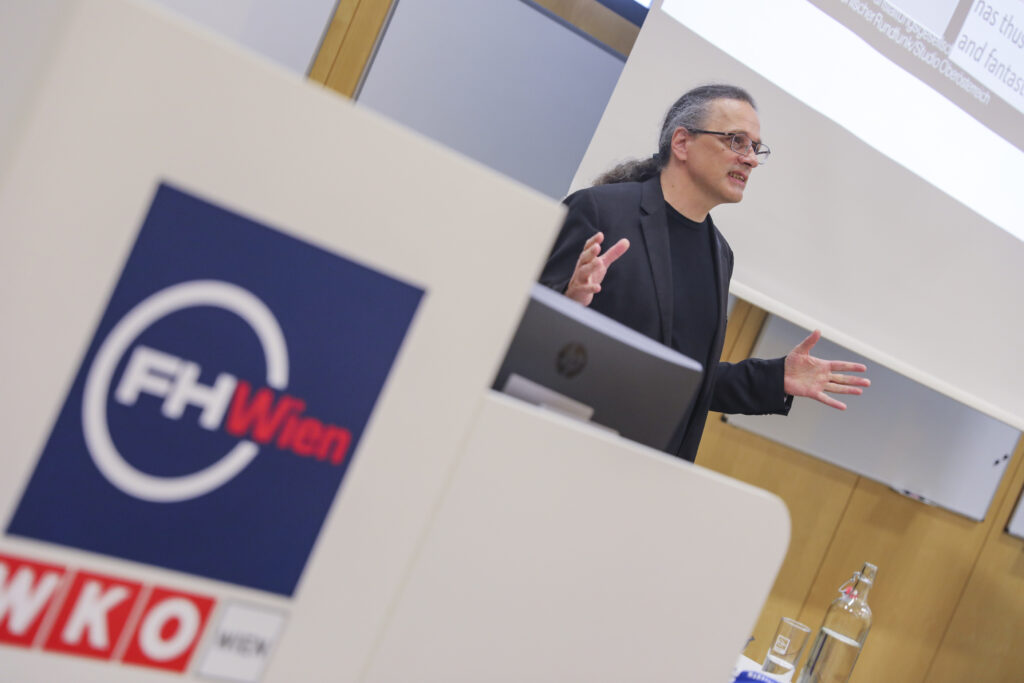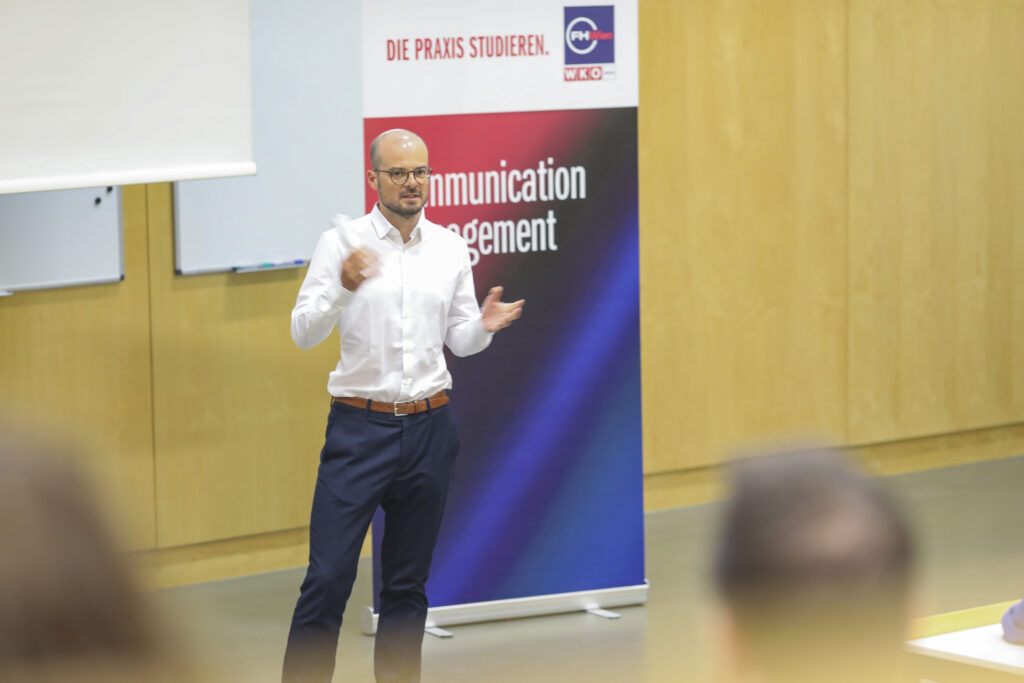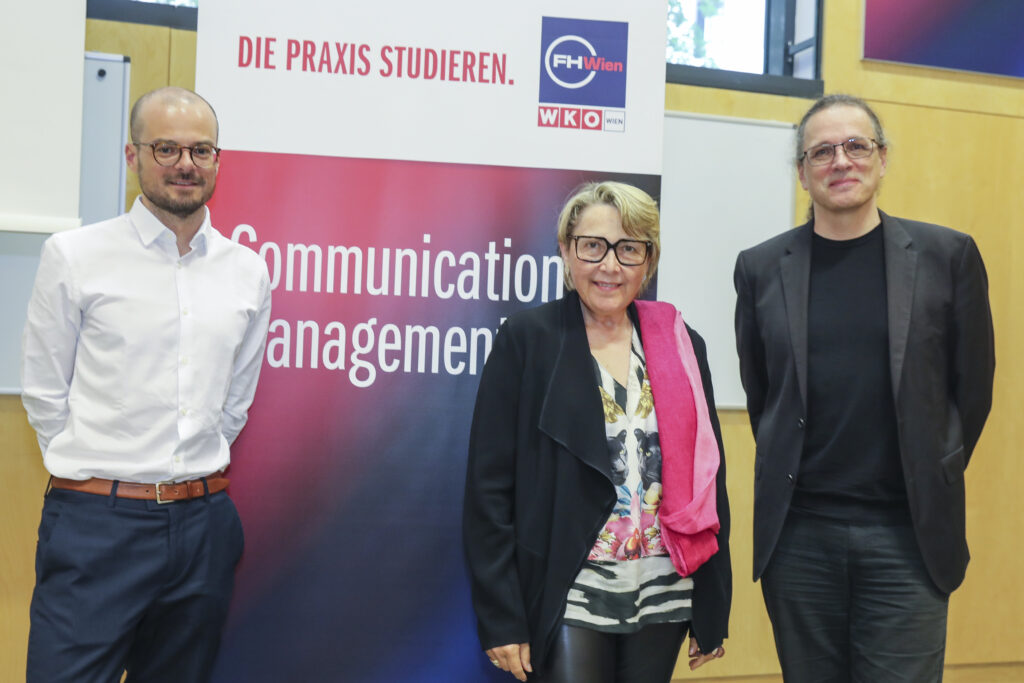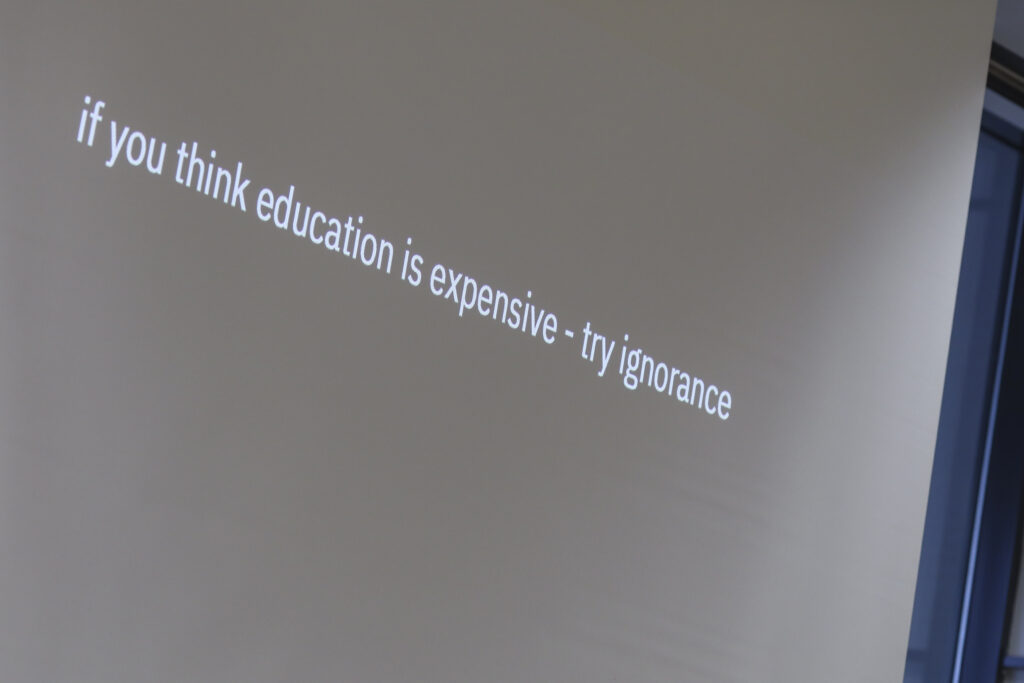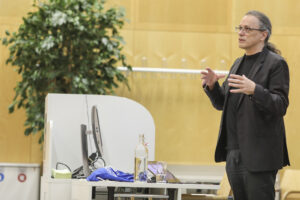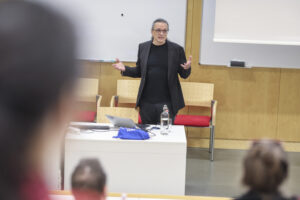What could a Digital Humanism look like and what prerequisites does it need? Gerfried Stocker, Artistic Director of Ars Electronica, explored this question in his keynote at FHWien der WKW on June 15, 2022.
The development of “digitalization” – as Gerfried Stocker calls it – has long since been completed. In the sense of “optimize, automate and rationalize,” the use of digital products and services has become a daily routine. This brave new digital world, which has long since gone beyond the mere exchange of data, has become a social habitat for us in which we share personal contacts and intimacies.
Thinking Digitalization Ahead – Pushing the Limits of Imagination
According to Stocker, we have therefore long been in the process of a digital transformation that goes far beyond the mere use of formerly analog, now digital services. It is the age of rethinking. The first new approaches have already led to networking and new business and organizational & management models, such as social media, Airbnb and Uber. For the first time, business areas have been established here that are no longer feasible in the analog world and are also often difficult to describe verbally. These new application contexts lead to new problems and also questions of morality and ethics: Where do you pay tax? Is it fair to other competitors? Is this new form of exploitation justified?
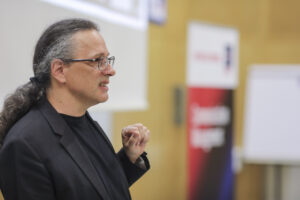
Digital technology is in nature a monitoring and control technology
Keyword “Smart City”: These concepts are not only according to the managing director of Ars Electronica in their basic form first of all data management concepts. The use of digital technologies for the benefit of the population presupposes the collection, processing and evaluation of data. Data must therefore also be allowed to be used in the sense of a digital transformation so that optimization and (quality) improvement can be guaranteed from it. However, anonymity, as we would like it to be, is then no longer possible. Stocker cites the area of care and health as an example. If a technology is to be used for the benefit of people and adapted to their needs (human-centric technology), it requires constant monitoring of the data and adjustment. Digital humanism is therefore also a permanent adjustment to people with the help of data.
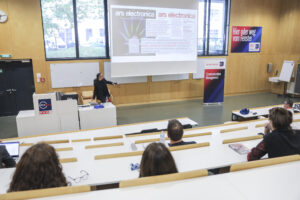
Algorithms reach their limits when it comes to questions of ethics
If we want to use digital technology to our advantage in terms of improving the quality of life, an autodidactic technology that makes adjustments virtually by itself would be advantageous. The system should make autonomous decisions and learn from them. Self-driving cars, for example, should recognize obstacles and stop or avoid them, thus protecting people from danger. So how does a technology recognize and distinguish objects of various kinds? Currently, they are entered into the system through painstaking processes in which each subject and object is identified and entered into the system by a human – this is currently done in many developing countries! The algorithm programmed by humans – mathematical functions where the result is already known in advance – now decides depending on the situation. But what to do when in a given scenario at least one human being can always come to harm? Even the best ethicists find it difficult to program moral standards – and these also differ from culture to culture. Who decides here what is right and what is wrong? Learning to live with differences – is that possible in a globalized world?
Game Changer Artifical Intelligence?
We are still a long way from “real” artificial intelligence, even with the example of self-driving cars. Even algorithms that seem to recognize faces or images are based on the learning process in the sense of “trial and error” and then recognize objects based on the sequence of pixels, but do not know what the overall concept of humans behind them means. In addition, stereotypes are increasingly reproduced in the case of this “learning process” – who doesn’t like watching cat videos on the Internet? If such systems are used for the detection of skin cancer, for example, this seems reasonable and justified. If the application is extended to the identification of criminals based on facial features, the question arises as to how reliable the whole thing is, right?
Despite the high level of acceptance of digital technologies in everyday life and the fact that we take them for granted, more and more so-called “contra-trends” such as “In Real Life Experiences” are gaining ground – a walk through the forest without a smartphone, drinking water from a stream, hugging a tree … that only exists in reality!
The keynote was organized by David Dobrowsky, Head of the Bachelor’s program in Corporate Communication, and Coordinator Marketing Communications Melanie Gratzer from the Communication Management Study Programs at FHWien der WKW. In the selection of topics, particular emphasis is placed on current issues relating to communication, digitalization and sustainability. Speakers from outside the fields of communication and management enrich the perspective on the topics of our time with their views.
In this sense, a big thank you to Gerfried Stocker for his exciting and thought-provoking lecture!
Photos: © Markus Hechenberger
